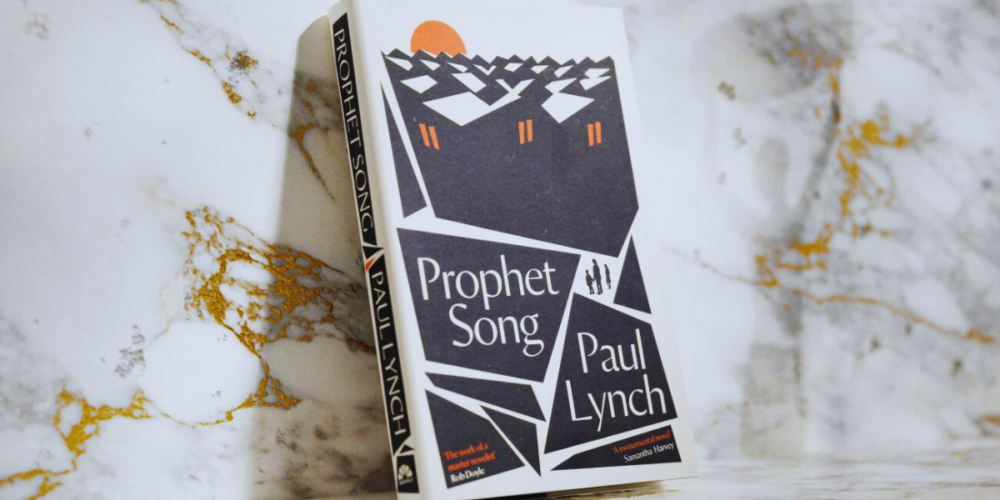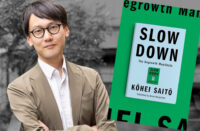Paul Lynch’s novel Prophet Song winning the 2023 Booker Prize signifies a notable awareness regarding the dismantling of democracy in the Western world. It underscores the realisation that the erosion of democratic principles is a pressing concern that transcends borders and could impact any country.
Microbiologist Eilish Stack is married to the full-time union official Larry, both are employed, have four children and command a middle income. It is from Eilish’s perspective, that the story is told, and this vista does not expand. What happens outside of Eilish’s world is too vague to form an important part of the narrative. Working-class people who touch on the narrative are described entirely as she perceives them: “an odd-jobs man from the flats nearby, an ex-junkie with hardly a tooth in his mouth, she cannot recall his name, last year Larry gave him twenty quid to clean the gutters” or a child with “the quick eyes and feral manner of a youngster from the flats”. No suggestion that these people may well have experienced the heavy hand of the law long before this. However, Eilish is experiencing the arbitrary nature of the state for the first time. It makes her and Larry question their belief in democracy.
From other characters around Eilish, readers gain some indication of how the country has found itself in its current state. Two years ago, the electorate had voted in the National Alliance Party (NAP). They established a new branch of the secret police, the Garda National Services Bureau (GNSB) and introduced emergency legislation only two months ahead of the novel’s action. Among the more astute political observations are those from Eilish’s father, Simon, who otherwise suffers from dementia. For example, he comments about his newspaper: “I don’t know why I still read this thing, he says, there is nothing in it but the big lie.” Simon also comments on how the ruling ideas are the ideas of the ruling class.
However, Simon is not heard. Politically aware readers search in vain for any kind of clues regarding the exact nature of this party or more to the point, who stands behind it.
One ominous clue is that an NAP member parachuted to top management at Eilish’s workplace is Paul Felsner – a German name, connoting rock. The Nazi allusion is further contained in the Party’s name which is remarkably like the NSDAP. However, unlike for example the dystopian novels of Margaret Atwood, no link is made between the regime and powerful corporations, no link between money and power, no link between money and wars. Readers are asked simply to accept that a police state has sprung up for no apparent reason, which now controls the population through a political party, its Gestapo like secret police, and the ever obliging and increasingly gagged media. The judiciary too is Government controlled. Anne Devlin, whose name brings to mind the United Irishmen, is a pro bono solicitor for the imprisoned: “she says the government has taken control of the judiciary by putting their own people in”. It would have been interesting to develop this line of rebel tradition in the novel.
Pastor Martin Niemöller famously stated ”When the Nazis came for the communists,/ I remained silent;/ I was not a communist” – going on in this vein through social democrats, trade unionists, Jews, and then ends: “When they came for me,/ there was no one left to speak out.” Prophet Song opens with the targeting of trade unionists and although there is a clandestine and growing resistance movement, we hear little of its character. In fact, as the novel’s events descend into chaos, it is suggested, that the resistance movement is “making up the rules as they go along, they’re just as bad as the regime”. Indeed, developments towards the end of the novel bear this out. The civilian population in Lynch’s novel are the victims in a scenario that is informed by the lives of refugees. There is no real indication that these things can be understood – people are simply presented as powerless victims of unfathomable forces. That such wars, such regimes arise from quite specific, mostly Western created circumstances, is not Lynch’s subject. He possibly creates more empathy for the afflicted by suggesting what is happening to them could happen in Ireland, but redress is to be found exclusively in the West – people who can afford to, flee to Canada, Northern Ireland (!), England, the US, Australia.
Today, there is great unease about increasingly authoritarian developments around the world, and Europe is no exception. In Germany, for example, the defence minister recently stated “We must become fit for war”, while the state is becoming more and more restrictive towards its own people.
Ireland has had associations with fascism in its history, censorship, emergency legislation and the banning of political parties from the media with Section 31. It has had instances of harassing and threatening employees in the university sector, for example, who opposed EU treaties. Then there is the blanket censorship of any voices that dare to question NATO’s stance on the Ukrainian conflict, the imposition new intrusive “hate crime” laws to police all of this and similar contentious issues.
The civic space is narrowing here as elsewhere in Europe, and a work like Prophet Song underlines how this trajectory might unfold. Paul Lynch’s Cassandra Call has touched a nerve among the middle classes. May it be a wake-up call.






